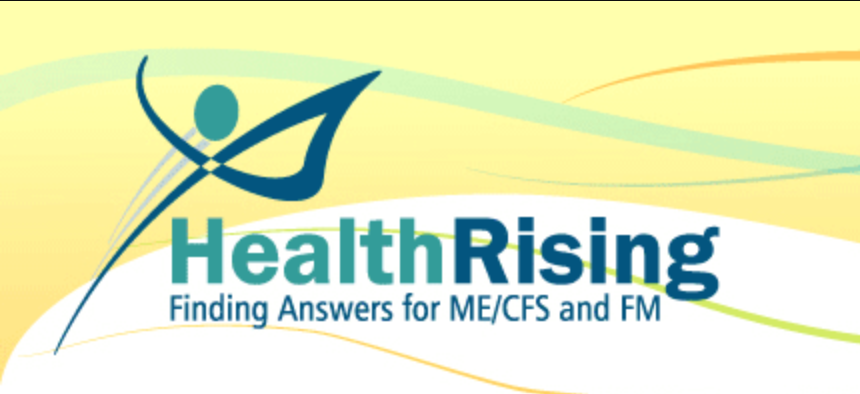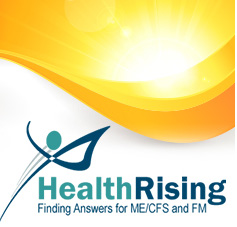Orthostatic Intolerance and Low Cerebral Blood Flow
Most people with CFS have Orthostatic Intolerance and Low Cerebral Blood Flow. So why do so few people with CFS try to ameliorate these conditions?
Probably the main reason why people do not address O.I. is that medical practitioners declare that if you can stand for 6 minutes without specific B.P. and Pulse changes you do not have O.I. (Australian Practice) Currently, some practitioners are doing 10-minute standing tests, which is what NASA has been doing for returning astronauts for decades. These practices continue despite that the very well-regarded researcher Peter Rowe has been saying for decades that a 10-minute standing test is sufficient to detect Postural Orthostatic Tachycardia Syndrome, but a 45 minute standing test is necessary to detect all forms of O.I.
Possibly the reason that people do not address Low CBF is that, like me until recently, they are unaware that simple non-drug measures can increase CBF.
In 2008 I tested myself for O.I. intending to stand for 45 minutes. I stopped at 30 minutes. I was exhausted. I was blue to the knees. Drop in Pulse Pressure exceeded the Bell/Streeton criteria. It took me hours to recover.
I increased my water and salt intake and tested again. After 30 minutes standing I did not feel tired. My BP and Pulse did not exceed any criteria. My feet had a blue tinge.
To counter CFS symptoms, I had to slowly increase water and salt. I stopped increasing these at 5 litres water and 4 teaspoons of salt (plus 2 teaspoons Potassium Chloride to offset the salt). I then began wearing compression tights, then added an abdominal binder.
By late 2022 these measures were becoming insufficient. I could walk fast but not slowly. Taking Pseudoephidrine was useful but prescription restrictions were limiting. I tried Ispiratory Muscle Training, which was effective but rather tiresome. Then I began to get sore feet. My 75yo feet were no longer tolerating maximum compression tights. It seemed that I was going to have to try drugs, but I would first have to convince doctors that I had O.I.
I had known that people with CFS had low CBR for a long time but had only heard about drug treatment. Now I looked around for anything that would improve CBF. A fairly comprehensive list is at optimallivingdynamics.com I tried several, with no real expectation that any would make a difference. Several had a positive effect, but the absolute standout was chewing gum.
I began chewing gum in October 2023 and have been chewing gum when upright or sitting ever since. If I accidentally stop chewing it takes about an hour for fatigue to begin.
Other measures which keep me CFS symptom free are:- Extreme no plant food diet. Supplements to replace minerals and vitamins that I am not getting in my diet. Inject 600mg Mg daily.
Most people with CFS have Orthostatic Intolerance and Low Cerebral Blood Flow. So why do so few people with CFS try to ameliorate these conditions?
Probably the main reason why people do not address O.I. is that medical practitioners declare that if you can stand for 6 minutes without specific B.P. and Pulse changes you do not have O.I. (Australian Practice) Currently, some practitioners are doing 10-minute standing tests, which is what NASA has been doing for returning astronauts for decades. These practices continue despite that the very well-regarded researcher Peter Rowe has been saying for decades that a 10-minute standing test is sufficient to detect Postural Orthostatic Tachycardia Syndrome, but a 45 minute standing test is necessary to detect all forms of O.I.
Possibly the reason that people do not address Low CBF is that, like me until recently, they are unaware that simple non-drug measures can increase CBF.
In 2008 I tested myself for O.I. intending to stand for 45 minutes. I stopped at 30 minutes. I was exhausted. I was blue to the knees. Drop in Pulse Pressure exceeded the Bell/Streeton criteria. It took me hours to recover.
I increased my water and salt intake and tested again. After 30 minutes standing I did not feel tired. My BP and Pulse did not exceed any criteria. My feet had a blue tinge.
To counter CFS symptoms, I had to slowly increase water and salt. I stopped increasing these at 5 litres water and 4 teaspoons of salt (plus 2 teaspoons Potassium Chloride to offset the salt). I then began wearing compression tights, then added an abdominal binder.
By late 2022 these measures were becoming insufficient. I could walk fast but not slowly. Taking Pseudoephidrine was useful but prescription restrictions were limiting. I tried Ispiratory Muscle Training, which was effective but rather tiresome. Then I began to get sore feet. My 75yo feet were no longer tolerating maximum compression tights. It seemed that I was going to have to try drugs, but I would first have to convince doctors that I had O.I.
I had known that people with CFS had low CBR for a long time but had only heard about drug treatment. Now I looked around for anything that would improve CBF. A fairly comprehensive list is at optimallivingdynamics.com I tried several, with no real expectation that any would make a difference. Several had a positive effect, but the absolute standout was chewing gum.
I began chewing gum in October 2023 and have been chewing gum when upright or sitting ever since. If I accidentally stop chewing it takes about an hour for fatigue to begin.
Other measures which keep me CFS symptom free are:- Extreme no plant food diet. Supplements to replace minerals and vitamins that I am not getting in my diet. Inject 600mg Mg daily.














